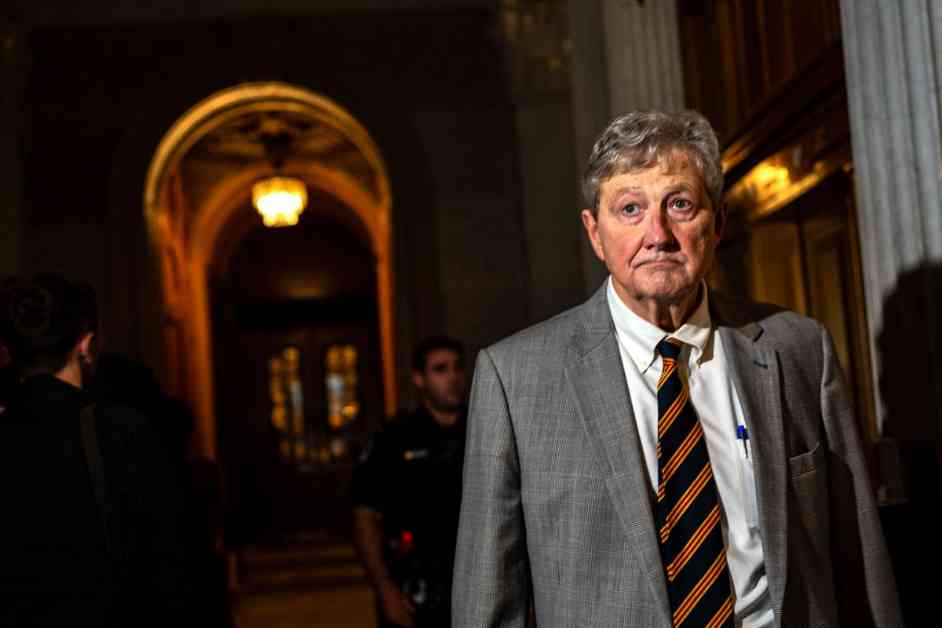Senator John Kennedy of Louisiana recently made false accusations against President Joe Biden and Vice President Kamala Harris, blaming them for the British government’s decision to hand over sovereignty of the Chagos Islands to Mauritius. Kennedy claimed that Biden and Harris were responsible for “giving away” the important British-American military base on Diego Garcia and accused them of supporting the agreement to appease the United Nations.
However, Kennedy failed to mention that the Chagos deal was the result of negotiations that started two years ago under former foreign secretary James Cleverly. The talks stalled but were revived after Labour took power in 2024. Despite the lack of American involvement in the negotiations, Kennedy urged President Trump to intervene and stop the deal from being completed.
The deal with Mauritius is set to come into force next year and has been backed by the outgoing Biden administration. However, Trump’s transition team has requested legal advice from the Pentagon regarding the agreement due to global security concerns. Nigel Farage, a close ally of Trump, has pushed for the deal to be vetoed and claimed that Trump will take action to stop it.
The controversy surrounding the Chagos deal adds to tensions between the Labour-led government and the incoming Trump administration on various issues, including support for Ukraine, climate change, and allegations of election interference. Trump’s national security adviser and nominee for secretary of state have both expressed concerns about the deal, suggesting that it could provide an opportunity for China to gain valuable intelligence.
In conclusion, the accusations made by Senator Kennedy against President Biden and Vice President Harris regarding the Chagos deal are unfounded and lack factual basis. The negotiations for the deal began under a previous administration, and the US was not directly involved in the process. The incoming Trump administration is considering vetoing the agreement due to global security concerns, but the decision ultimately lies with the UK government.












